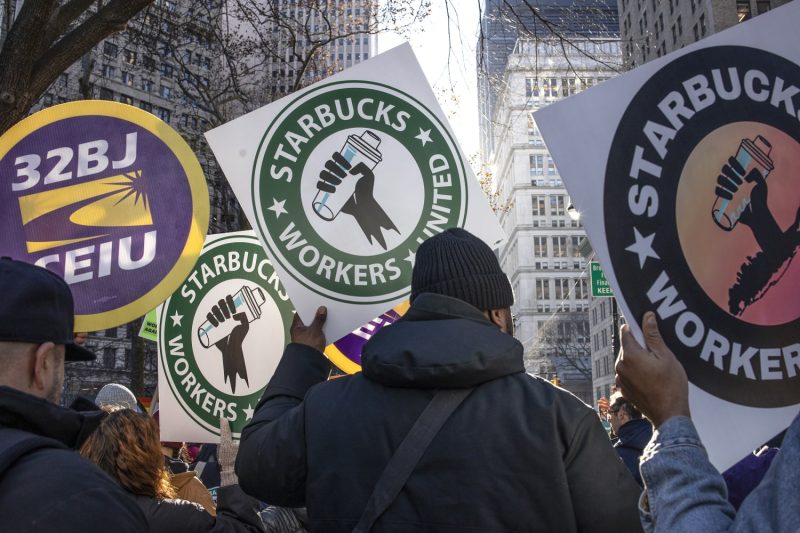In a recent turn of events at Starbucks, the spotlight now shines on new CEO Brian Niccol and his commitment to collaborate with unions, setting a cooperative tone as discussions progress. This shift in strategy comes at a pivotal moment for the renowned coffee giant as it navigates through various challenges and transitions within its organizational structure.
The decision to embrace union representation marks a significant departure from Starbucks’ historical approach to labor relations. By acknowledging the voices of its workforce and opening the door to collective bargaining, the company demonstrates a willingness to prioritize the well-being and interests of its employees. This move aligns with the evolving landscape of labor rights and the growing demand for fair and equitable treatment in the workplace.
Niccol’s leadership style, characterized by a focus on transparency and inclusivity, signals a new era of engagement and cooperation between management and employees. His proactive stance on working with unions reflects a progressive mindset that values open communication and mutual respect. By fostering a culture of collaboration and partnership, Starbucks aims to foster a more harmonious and productive work environment for all stakeholders involved.
As talks progress between Starbucks and the union representatives, there is an opportunity to address key issues related to wages, benefits, working conditions, and career advancement. By engaging in constructive dialogue and seeking common ground, both parties can work towards finding sustainable solutions that benefit everyone involved. This approach not only enhances the overall well-being of Starbucks employees but also contributes to the company’s long-term success and sustainability.
The decision to embrace union collaboration underscores Starbucks’ commitment to fostering a culture of fairness, equality, and empowerment within its organization. By listening to the concerns and aspirations of its employees, the company demonstrates a genuine dedication to building a more inclusive and supportive workplace environment. Through effective communication, negotiation, and compromise, Starbucks and the union can forge a path towards a more harmonious and prosperous future together.
In conclusion, the appointment of Brian Niccol as Starbucks’ new CEO and his commitment to working with unions represent a bold and forward-thinking approach to labor relations. By embracing collaboration, transparency, and mutual respect, Starbucks sets a positive example for other companies looking to create a more employee-centric and sustainable business model. As negotiations progress, the outcome of these talks will not only shape the future of Starbucks but also influence the broader landscape of labor relations in the corporate world.
